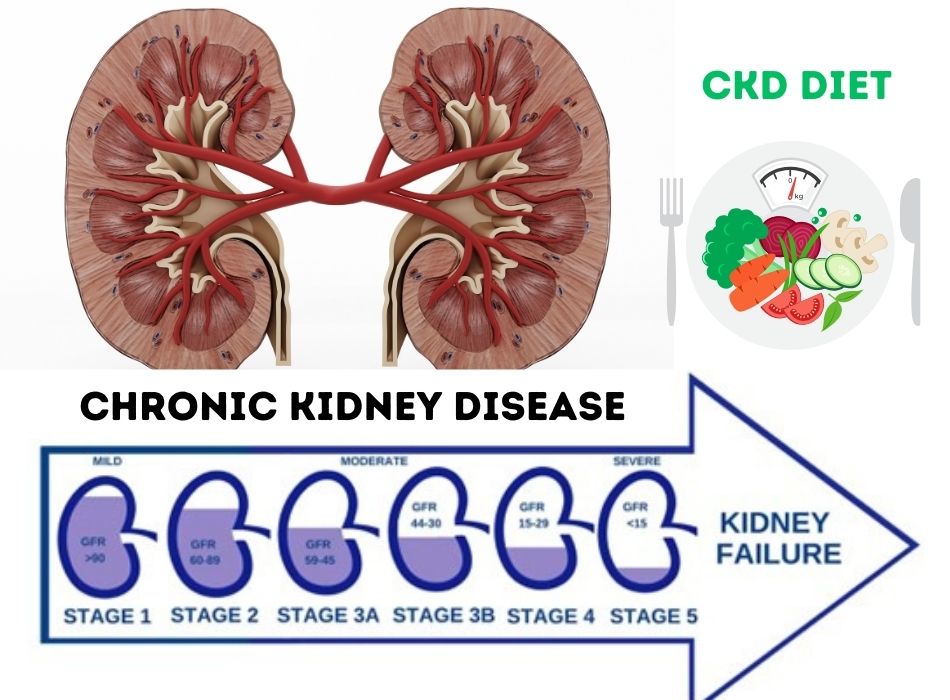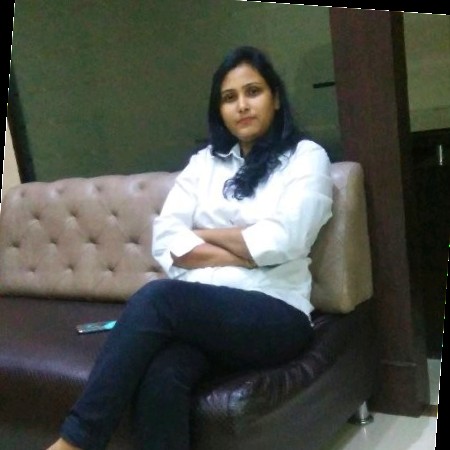
Effective CKD Diet Strategies for Better Kidney Health
Table of Contents
Chronic Kidney Disease is also known as “kidney failure”, i.e. the gradual loss of normal kidney functions. The kidney plays a vital role in filtering all the harmful substances present in our blood, reabsorbing the useful ones that could be put to use once again, leading to the formation of the appropriate volume of urine daily. If the kidney starts to slack, then there could be an abnormal build-up of toxic substances in the blood, leading to heinous physiological effects like metabolic acidosis, anemia and even cardiac diseases. As kidneys can no longer balance the salt and mineral concentration in the body, the onus lies on the patient to follow a diet that would help in controlling the salt levels in the blood.
Medical Nutrition Therapy in CKD Diet
MNT is nutrition counselling from a registered nutritionist or a dietician. Dietician Rukhsana Azhar is one of the dietitians who can provide diet meal charts for people diagnosed with advanced chronic kidney disease (CKD). Often, the medical professionals diagnosing the case refer to specific dieticians who guide the patients with the appropriate diet to make sure that the kidney is not put under any further pressure, thus improving the quality of life.
Why is counting calories so important?
Even though people follow the method of “counting calories”, it’s not really needed for ordinary people. But yes, it is a precautionary measure for people with minor or advanced CKD. Calories are the energy packets which provide the “energy” needed for daily activities. If one consumes fewer calories than the actual required amount, then it would lead to eventual weight loss. This is called a “calorie deficit”. Research has shown that a progressive decline in glomerular filtration rate in CKD patients causes a significant reduction in appetite. Appetite is directly related to the “hunger hormone” or ghrelin along with the brain stimulus. However, CKD patients cannot afford to be anorexic, accounting for their poor appetite. They undergo dialysis often and hence need to consume a regular and balanced diet, as recommended by a registered dietician.
Role of protein in CKD diet
Protein is a vital substance that should be part of one’s regular diet. It helps build muscles and tissues and plays a vital role in tissue repair, especially for those who are involved in weight training. Our body uses the protein and breaks it down into smaller compounds and waste materials, which need to be excreted out. However, as the kidneys are not functioning at their highest in patients with CKD, nutritionists recommend a diet with moderate protein intake so that waste does not accumulate in the body. It’s a misconception that protein is only possible from animal sources. But that’s not true. Protein can be from both plant and animal sources.
| Animal source protein | Plant source protein |
| Meat options like chicken, mutton, beef, pork | Soy food like soya chunks, tofu |
| Eggs | Beans, lentils |
| Fish | Oatmeal, cereals |
| Dairy products like milk, butter, cheese, ghee, curd, paneer | Nuts, seeds like walnuts, chia seeds, pumpkin seeds |
General Tips for protein consumption in CKD patients
ü Smaller portions of animal proteins like Fish, Meat and dairy products are to be consumed. As meat and dairy products contain high amounts of phosphorous, it’s best to consume them in considerably lower amounts.
ü Rest of the protein requirement should be compensated with plant protein sources like beans, soy products and a vast assortment of nuts and seeds.
A registered dietician-detail provides a detailed diet chart.
Role of fats in a CKD diet
In recent times, fats have often been considered synonymous with “weight gain” or “unhealthy”; however, it’s not true. Fats, just like others, are an essential component of a curated balanced diet. Fats are known to be stored in the fatty tissues and are put to use when the body is in dire need of energy to perform a function, and no immediate energy source like carbohydrates is present. The wrong kind of fats may lead to heart diseases and also put extra pressure on the kidneys. Patients with CKD have a higher risk of cardiac disease, hence the need to control the nutrient uptake. Saturated and trans fats are the sources of fat, which can spike up cholesterol levels and block the blood vessels, in turn leading to cardiac failures. However, one can totally have monounsaturated and polyunsaturated (PUFA) fats. Trans fats are mainly present in deep-fried, baked food, fast food, etc., which might be readily available and tasty to the taste buds but are immensely harmful to one’s health.
Dos and Don’ts of Fat Intake in CKD diet
| Monounsaturated Fats/PUFAs | Trans/Saturated Fats |
| Can be consumed more, good for health | Harmful for health |
| Nuts like walnuts, cashew, macadamia nuts | Red meat |
| Seeds like sunflower seeds, pumpkin seeds | French fries, highly deep-fried snacks and food |
| Oils like olive oil, sunflower oil, sesame oil | Butter |
Need to check Sodium intake-CKD patients.
Sodium is a mineral found in regular salt, hence a daily part of one’s diet. The kidney plays a role in reabsorbing these mineral ions in the last stage of the excretory system to maintain a proper sodium balance in the body. Improper filtering of sodium ions might lead to an increase in blood pressure, oedema (swelling up of the face), and further stress on the kidneys and heart. Thus, CKD patients need to consume salt and other sodium-containing products like preservatives, pickles, ready-made packaged food, and snacks only under proper guidance and as per the diet chart provided by their concerned dietician.
Tips to reduce the sodium intake in the daily diet of a CKD patient
ü Packaged, canned food is to be avoided as much as possible. Canned foods are known to have high amounts of preservatives, which are loaded with salts, sodium and phosphorous ions.
ü It is best to consume fresh fruits and vegetables and prepare food from scratch rather than relying on ready-to-cook food items.
ü Natural herbs and Indian spices should be used instead of preservatives. Indian spices act as an excellent seasoning rather than artificial preservatives.
ü Check the labels in the ingredient list for the sodium content.
ü Properly rinse and drain canned food, which is known to contain extra preservatives.
Need to check Potassium intake-CKD patients.
Potassium is a more complex mineral to be filtered by the kidneys. So, in CKD patients, it becomes way too complicated to filter out the potassium ions from the blood, leading to potassium accumulation. Too much potassium can put a strain on the heart.
To lower potassium in the diet
ü It is wise to choose low-potassium fruits. Bananas are a high-potassium fruit. Hence, they need to be avoided by CKD patients.
ü Avoiding packaged and canned food containing high preservatives.
ü Certain cooking methods could be followed that are known to lower the potassium levels in vegetables, such as potatoes.
ü Consulting a board-certified dietician to curate a CKD-friendly diet chart, or one could also follow the articles by DIET4UWELLNESS.
Need to check Phosphorus intake-CKD patients.
CKD patients have failing kidneys, so it is difficult for them to filter out excess phosphorous ions from the blood. Excess phosphorous in the blood can lead to weakening of the bones. Phosphorous is a critical component of preservatives added to the canned and ready-to-eat food items. Also, it is found in protein-rich foods like red Meat. Thus, it is best to keep track of phosphorous as per the diet chart prepared by a dietician.
| Foods lower in phosphorous | Foods higher in phosphorous |
| Bread, pasta and rice | Dairy food like butter, ghee, curd and yoghurt |
| Cereals and cornflakes | Beans, lentils and nuts |
| Fresh fruits and vegetables | Meat, poultry and fish |
Liquid consumption in CKD patients?
Our body needs a certain level of fluids to function correctly. However, in CKD patients, as they have a malfunctioning kidney, it is better to limit the amount of liquids. In such cases, removing excess liquids from the body would put the kidneys under more stress. Excess liquid accumulation in the body could lead to oedema, rising blood pressure, etc.
Eating right for CKD
Opting for foods with less salt and less preservatives.
The only way to do this is to incorporate as many fresh fruits and vegetables as possible. Cut fruits packaged into cans and crates are loaded with preservatives, which are harmful to the kidneys. Pickles and packaged snacks also contain preservatives and high salt content, which put the kidneys at further risk, making CKD conditions worse than before.
Opting for the right amounts of protein and avoiding very high protein sources.
The list of very high proteins includes red Meat like mutton, which are to be avoided as much as possible. Instead, eggs and chicken should be consumed in moderation. Beans and lentils could also be preferred options, especially for vegetarians.
Choose unsaturated fats like monounsaturated/PUFAs, and avoid saturated and trans-fat options.
Fats foods and deep-fried food items are rich in unhealthy fats like Trans and saturated fats, which are very harmful both for the heart and kidney health and, hence, should be avoided by CKD patients. However, healthy fats like nuts and seeds are an important addition to their diet, which would provide the already immunocompromised patients with the required amount of energy to undergo their daily chores.
FAQs Regarding CKD DIET
Q:-How long can a patient with CKD live?
A:- CKD or Chronic Kidney Disease. The life expectancy of a person diagnosed with CKD depends on their age and sex. Let’s say a 60-year-old man can live for an average of 15 years with stage 1 kidney disease. That can decrease down to 13 years, eight years, and six years in the 2nd, 3rd and 4th stages of CKD, respectively. This life expectancy is a bit higher in the case of women of a similar age demographic. For a 60-year-old woman, stage 1 kidney disease can give a person approximately 18-20 years.
Q:- How long can a person survive with CKD without treatment?
A:- A person diagnosed with advanced-stage kidney failure can hardly survive for a few weeks without proper treatment or dialysis.
Q:- What is the most significant risk factor for CKD patients?
A:- Some of the risk factors in CKD patients include heart disease, diabetes and increased blood pressure. Managing the food, diet, and lifestyle would help manage these risk factors, thus improving kidney health.
Q:- Which is the last stage of CKD?
A:- The most advanced stage of kidney failure is stage 5. When one reaches stage 5, the life expectancy balances out for both men and women. This stage is also called End-stage renal disease (ESRD).

Hello My Name is Dt. Ruksana Azhar and I am a certified dietician and providing online & offline services for Weight Management, PCOS/PCOD Management, Diabetes Management , etc. I have 12+ years of experience in the Apollo Hospital Delhi , Max Super Specialty Hospital Delhi, Lilavati Hospital Mumbai and VLCC healthcare Mumbai. I loves to write healthcare and lifestyle related blog. My favorite part of being a doctor is the opportunity to directly improve the health and wellbeing of my patients and to develop professional and personal relationships with them.



